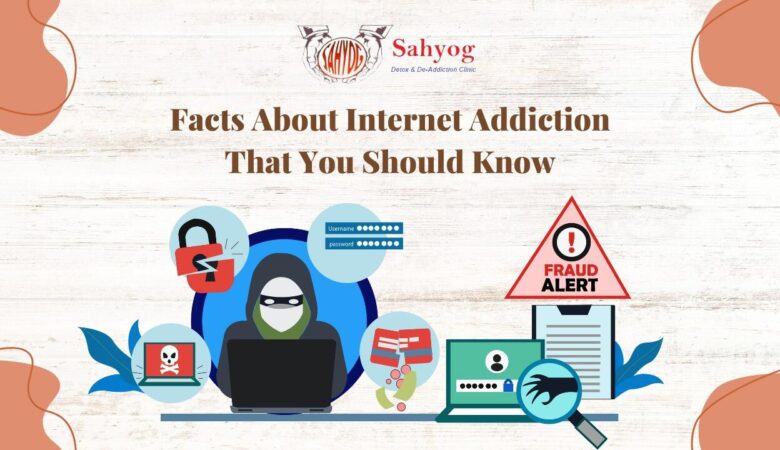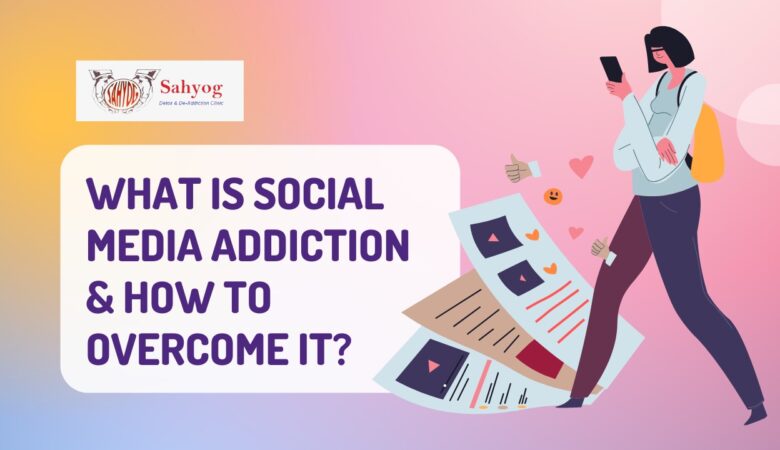Facts About Internet Addiction That You Should Know
Introduction The internet has inevitably become a very important part of our everyday lives. We use it for many reasons, be it for work or to simply stay connected with friends and family, and for entertainment. It’s hard to imagine life without it. But for some people, the internet is more than just a tool—it’s a crutch, an addiction. And like any addiction, it can have serious consequences. Here are some facts about internet addiction that you should know. What is Internet Addiction? Internet addiction is a real and growing problem. It’s not just about spending too much time online – it’s about being compulsively addicted to the internet and the way it makes you feel. Several signs can indicate whether someone is addicted to the internet, including: feeling restless, irritable, or moody when offline or unable to access the internet using the internet as a way to escape from problems or unpleasant feelings feeling like you need to be online all the time to feel happy or fulfilled neglecting work, school, or other important obligations in favor of spending time online sacrificing sleep or mealtimes to spend more time on the computer or phone engaging in risky behavior online, such as sharing personal information with strangers or meeting people online in person without telling anyone What Makes A Person Prone To Internet Addiction? There isn’t a clear answer as to what makes a person prone to internet addiction. However, certain risk factors have been associated with the development of this condition. These include things like: Having another mental health disorder: A person who already has a mental disorder such as anxiety, depression, or ADHD, may be more prone to internet addiction. He or she may find themselves constantly scrolling through their phone aimlessly, which is a major sign. Isolation and loneliness: People who are introverted and socially isolated or lonely are more likely to get addicted to the internet as compared to people who are social and extroverted. This is because they may find themselves more comfortable on the internet, whereas other people only know the ‘online’ version of them. Thus, these people will find themselves constantly online and addicted to the internet. Difficulty regulating emotions: If a person faces difficulty in understanding and regulating his or her emotions, he or she may be prone to internet addictivity. This is because he or she will try to deviate their thoughts constantly and will try to run from their problems by diverting their focus to something easier, i.e. surfing the internet. Poor coping skills: A person having poor coping skills is much more likely to get the addiction. He or she will try to divert their minds by focusing on the internet rather than focusing on how to cope with their problems, leading to them hooked on to internet addiction. A history of trauma or abuse: If a person has undergone trauma or abuse in their past, they may find the internet as the best escape from reality as well as from their traumatic experiences. This history of trauma and abuse may thus lead to the person being addicted to the internet. Limited social support: A person who has limited social support in real life is more likely to develop internet addiction. This is because being active on the internet and social media may help them find friends and virtual social support. In a way, it is helpful that they find themselves social support as well as virtual friends. However, in the long run, these people may even find themselves being prone to internet addictivity and using the phone most of the time of their day. 13 Facts About Internet Addiction Here are 13 facts about internet addiction that you probably didn’t know about: Internet addiction is a real thing. It is not a joke. Some people get addicted to the internet due to the reasons specified above. It’s more common than you might think. It is not a new thing. Almost half the people on the internet are addicted to it and may find themselves being constantly online on the internet and social media. It can be just as addictive as drugs or alcohol. Internet addictivity is not a small thing. It can be highly addictive and may even lead to many emotional, social, and even physical problems in people. Internet addiction can lead to serious consequences. A person may be more prone to emotional, social, as well as mental damage due to internet addiction as compared to other addictions and disorders. Some of the negative consequences of internet addiction include social isolation, financial problems, relationship problems, and mental health problems. It’s not just about spending too much time online. It is also about the way you use the internet. If you are obsessively using the internet or if you are spending too much time gaming or chatting online, then it may be an indication of internet addictivity. It can impact your real life. It can lead to many problems in a person’s life, including impacting your work, school, and social life. It can be hard to break free from internet addiction. If you are addicted to the internet, it can be hard to break free from it. You may feel like you cannot live without it and may find yourself being online for long periods. Treatment is available for internet addiction. There are many treatment options available. You can get help from a therapist or counselor who specializes in this disorder. Internet addiction is a serious problem. It should not be taken lightly as it can have a major impact on your life. If you think you might be addicted to the internet, seek help from a professional right away. Treatment options include cognitive-behavioral therapy, psychotherapy, and medication. There is no one-size-fits-all solution to overcoming internet addiction. Every person is different and will require a different approach to treatment. There are different types of internet addiction. Some of the most common types include social media addiction, gaming


